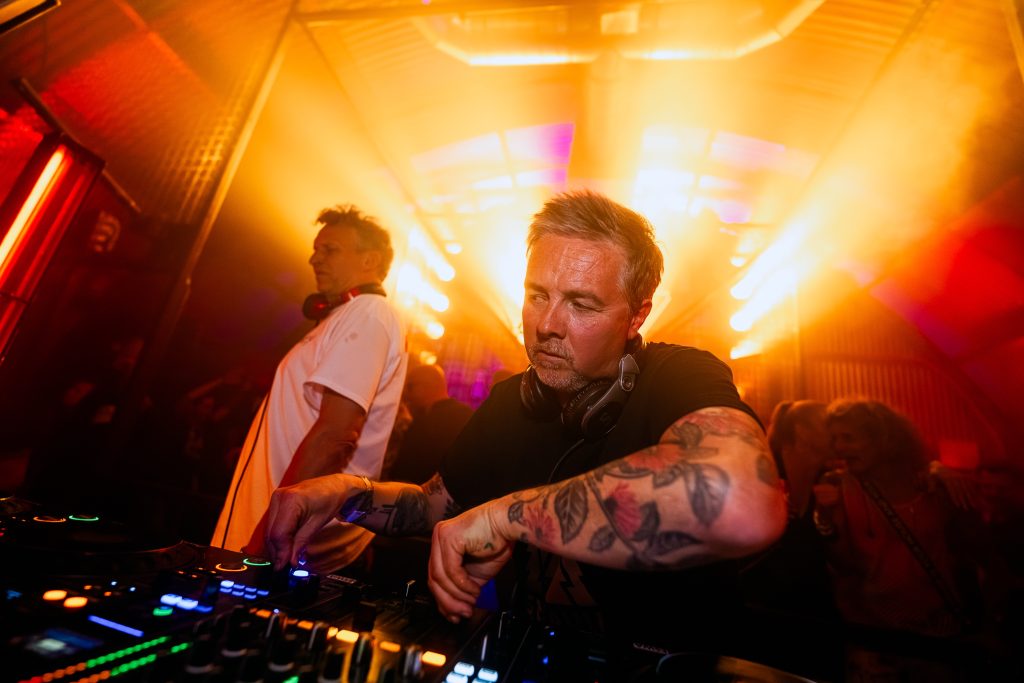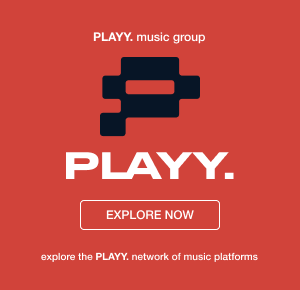
Alexander Koning, a powerhouse producer, DJ, label owner, and promoter, has been a cornerstone of the electronic music scene since his immersion in house and techno in the late ’80s, releasing on iconic labels like Global Underground, Pacha, and Subliminal while founding his own imprints starting in 1994 and launching [Percep-tion] Records in 2013 to push innovative soundscapes. After a five-year health hiatus, he’s returned stronger, blending deep house and hypnotic techno with global DJ sets at legendary venues such as Watergate, Ministry of Sound, and Sisyphos, and festivals including Awakenings, DanceValley, Loveland, and recent appearances at R² Festival and Valtifest 2025, earning a 1998 nomination for Best Dutch Organization for his groundbreaking underground raves featuring debuts from stars like Adam Beyer and Chris Liebing. His relentless creativity shines through major collaborations like Distorted Beauty with Andy Slate on labels such as ViVa Music and Toolroom, and his fresh project C.U.N.T. with Ed Dejon, highlighted in his most recent releases including the electrifying ‘C.U.N.T.‘ EP in July 2025 and the single ‘Bright Satellite‘ in September 2025, redefining electronic boundaries with passion and artistry.
Now, join us as we sit down with Alexander Koning for an exclusive interview, exploring his storied career, production secrets, and visionary future in music.
What’s the most memorable moment from your early days organizing underground raves in the Netherlands?
That time in the early nineties when we threw an illegal rave in Amsterdam, and someone just stole the smoke machine from right under the DJ. Nobody noticed because we were all completely wasted. While the party was in full swing, someone actually went under the DJ booth, disconnected the smoke machine, and took it — hahaha! We only noticed it when the last DJ started to play. It wasn’t funny at the time, but thinking back, it was absolutely hilarious.
How do you weave house, techno, and classic tracks in your DJ sets to craft a distinctive vibe?
I’ve been doing this since the beginning of my DJ career. I’ve never been the type of DJ to only play one style of music—that would be so boring. In the early nineties, many people found it strange when I blended a disco track into a techno set. Back then, it wasn’t common at all—now it’s quite normal! I’ve simply stayed true to my style all these years. Today, I still play at house, classic, and techno parties, often under the same name. After 30 years, people know what to expect from me! 🙂
What inspired the sonic direction of your latest tracks under your own name and the new Project C.U.N.T. with Ed Dejon, and how did you shape their sound?
Nothing in particular, to be honest. I just started making more electro and freestyle tracks at a certain point. When I make music, I don’t really think about sticking to a specific style to boost my career or anything like that. It’s all about the mood of the day. I reached out to Ed Dejon, a longtime friend of mine, and asked if he’d be interested in doing an electro release together, knowing his roots also lie in electro. The name C.U.N.T. came about as a joke we had on WhatsApp.
How has running [Percep-tion] Records influenced your creative process as both a producer and a DJ?
I think [Percep-tion] is more of an outlet for my own creative thoughts. It doesn’t influence me, but I influence [Percep-tion]. It’s my perception of music, parties, and art.
How do you incorporate visuals and immersive elements to elevate the experience at your music events?
We do different things at each party; sometimes we use visuals with LED screens and collaborate with various visual artists. Other times, we incorporate walking art, puppet performers, and dancers. Every event features different entertainment on site. Honestly, we are moving more towards having live performers—dancers, puppet artists, actors, and so on—because it creates a better connection with the audience than just visuals alone.
What’s a specific production technique you used in your recent release that you’re particularly proud of?
I’m not really the best technician out there, so I don’t delve too deeply into the software and that is partly because I am not really interested in that. For me, making music is all about feeling — I create from the heart and try to keep the technical stuff to a minimum. The thing I’m most proud of are my new PMC monitors. Since I got them, my music sounds so much better — that’s my secret production technique: using the best monitors in the business!
How did your five-year hiatus shape your perspective on music and your return to the scene with [Percep-tion]?
Yeah, that’s a pretty long story. Honestly, during the five years I was ill, I never thought about returning to music. I lost everything—10 labels, my store, my DJ career, and more. Five years is a long time to be out of the scene. When I started to feel a bit better, I decided to move to Berlin for a year. Not for music, but because I really liked the city. Mainly, I went there for the art and graffiti. During my illness, painting was the only thing I could do, so I started to do a lot of it.
In Berlin, I made many new friends, and one day, one of my graffiti friends was looking for a new studio for his art. I decided to come along just to support him. That’s when I met a girl at Funkhaus, and we immediately clicked. Before I knew it, I had a studio with her, and I started making music again.
She was connected with the guys from Bar 25 and Kater Blau, and within two years, we began organizing parties together—events that connected art from Berlin artists with music from Berlin musicians. Later, we even did an after-party for one of the biggest street art festivals, called Stroke.
Before I knew it, I was back into the music scene. I ended up staying in Berlin for 15 years instead of just one, hahaha.
Looking back at your journey since the ‘80s, how do you feel the electronic music scene has evolved, and where do you see it going?
The electronic music scene has transformed into a money-driven monster, where, honestly, music is no longer the main focus. Of course, there are still small organisations and individuals doing it for the love of music, luckily. I believe what we’ll see now is a reversal—booking artists solely based on their musical talent again, rather than their social media presence. We’ll return to the core of what music is all about. While big festivals will still exist, we’re likely to see a shift, with many of the larger events stepping away from the scene. I think this is ultimately a healthy development.
What was the toughest challenge you faced in balancing your roles as a producer, DJ, label owner, and promoter, and how did you overcome it?
Honestly, I never really thought about all this; it came completely naturally. I’ve been into music since I was 7 years old. That passion evolved into opening a record store, and from there, I started playing more at parties. I then wanted to create my own music, so I set up a small studio in the store. Of course, you need a label for a record store, and from that point, everything started to happen automatically. You meet people, build relationships, and start collaborating.
Today, I still play almost every weekend, run labels, produce music almost daily, and organize a lot of parties. It’s not something I planned or set out to do; I’ve never been a planner or focused solely on a career. I just do what I love, and that’s what’s kept me going all these years.
Could you let your fans know what you have coming up in the next few months?
I have a lot of releases lined up across different genres, including a compilation CD coming out soon. A book will also see the light, featuring DJs and promoters from the early days of the scene, with a 15-page story about my life. Additionally, a sample CD with my work will be released, and there are many parties and DJ gigs scheduled for this winter.
It’s going to be a music-filled winter, and I love it!
Stream ‘Bright Satellite‘:
Follow Alexander Koning:

